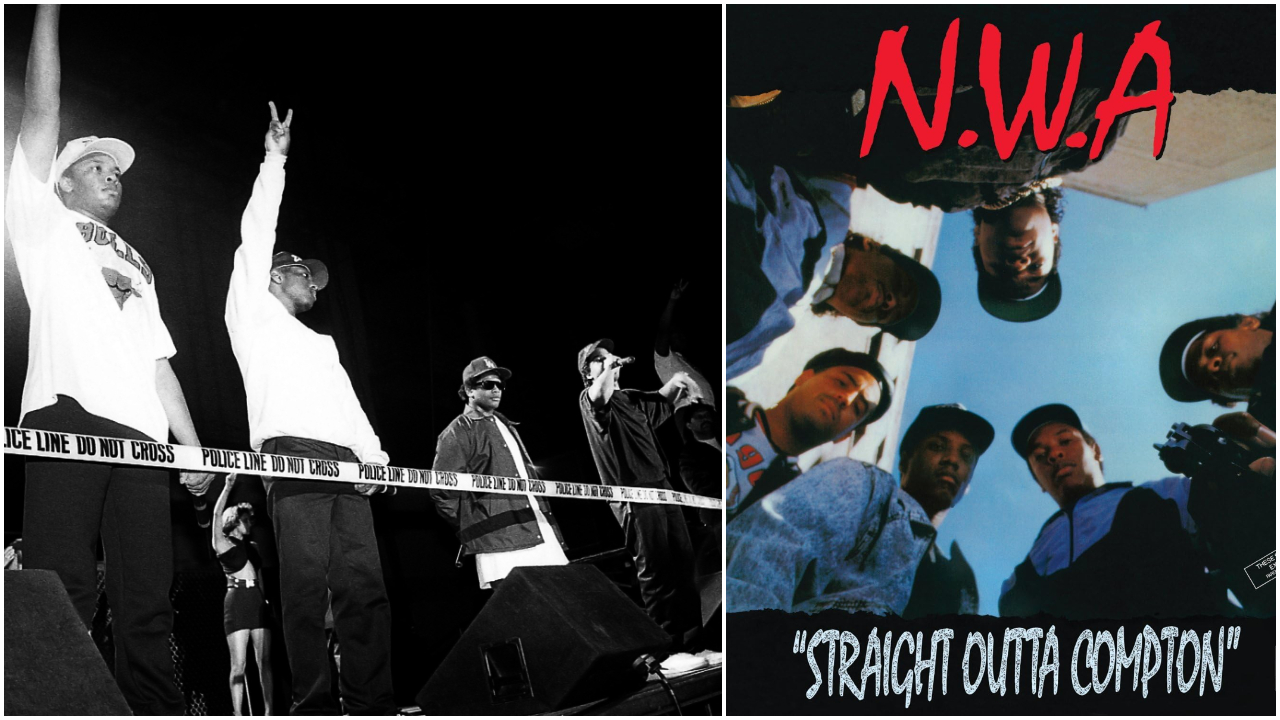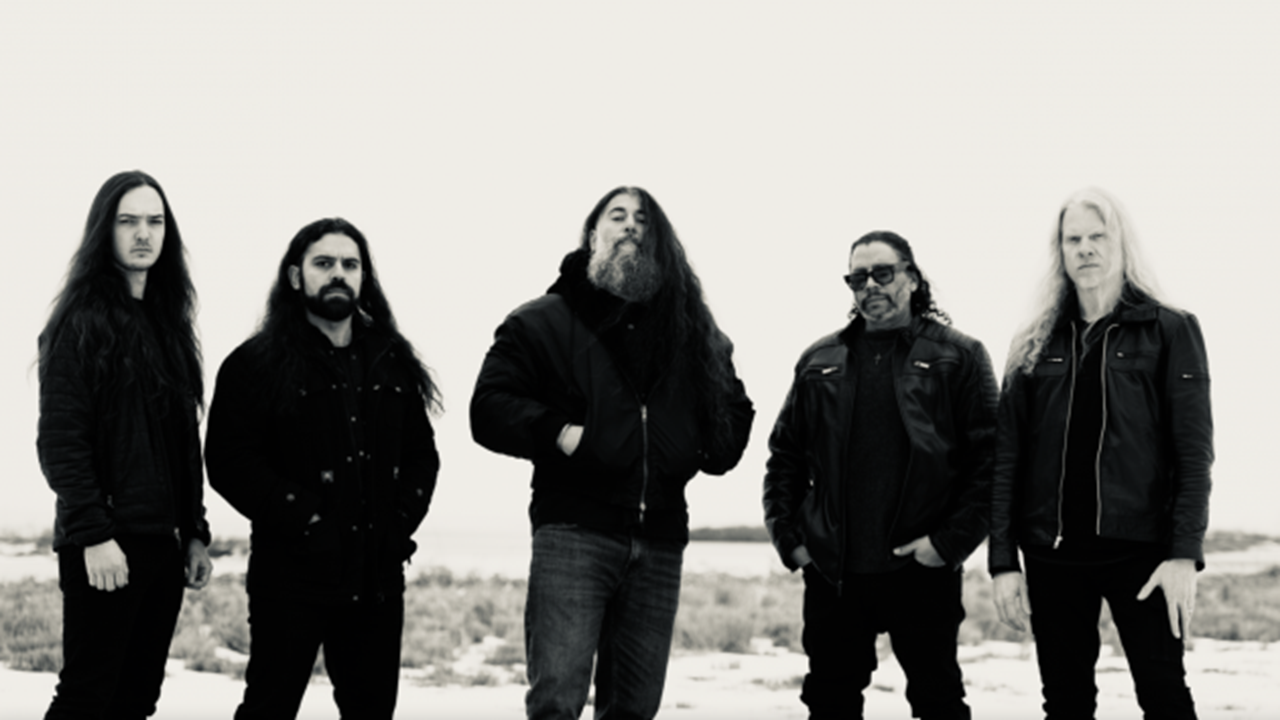"The N.W.A. attitude is we don't give a f**k": how Straight Outta Compton changed hip-hop, and then the world
Released on August 8, 1988, N.W.A.'s explosive debut album Straight Outta Compton remains one of the most powerful protest records ever

Select the newsletters you’d like to receive. Then, add your email to sign up.
You are now subscribed
Your newsletter sign-up was successful
Want to add more newsletters?

Every Friday
Louder
Louder’s weekly newsletter is jam-packed with the team’s personal highlights from the last seven days, including features, breaking news, reviews and tons of juicy exclusives from the world of alternative music.

Every Friday
Classic Rock
The Classic Rock newsletter is an essential read for the discerning rock fan. Every week we bring you the news, reviews and the very best features and interviews from our extensive archive. Written by rock fans for rock fans.

Every Friday
Metal Hammer
For the last four decades Metal Hammer has been the world’s greatest metal magazine. Created by metalheads for metalheads, ‘Hammer takes you behind the scenes, closer to the action, and nearer to the bands that you love the most.

Every Friday
Prog
The Prog newsletter brings you the very best of Prog Magazine and our website, every Friday. We'll deliver you the very latest news from the Prog universe, informative features and archive material from Prog’s impressive vault.
On September 9, 1989, Express Yourself, the first UK single from Los Angeles hip-hop group N.W.A., debuted at number 50 on the national singles' chart. Based around a sample of funk/soul act Charles Wright & the Watts 103rd Street Rhythm Band's 1970 single of the same name, with its upbeat, radio-friendly bounce, and rapper Dr. Dre's empowering, positivity-fuelled lyrics encouraging listeners to live their most true, authentic lives ("Don't be a sequel"), to a casual listener on BBC Radio 1, the song wouldn't have sounded entirely out of place on De La Soul's 3 Feet High And Rising album, which had gatecrashed the UK Top 10 earlier in the year.
In reality, the single was Straight Outta Compton's own Trojan Horse, an offering whose appealing surface aesthetics gave no indication of the violent, chaotic forces that would be unleashed from within. For from the moment it opened with the sombre proclamation "You are now about to witness the strength of street knowledge", Straight Outta Compton was a hip-hop album like nothing which came before it, an unflinching, unfiltered and uncompromising account of day-to-day survival in South Central Los Angeles, in which life was cheap, violence was endemic, women were "bitches", and the only good cop was a dead cop.
In July 1989, less than one year after it first hit the streets, N.W.A.'s debut set was certified platinum for one million sales in America, the first 'gangsta rap' album to achieve that distinction. That term didn't actually exist before Straight Outta Compton - N.W.A. themselves shunned the tag, and used the term 'reality rap' to describe their sound - but came into being as a direct consequence of the album's third track, Gangsta Gangsta, which found Ice Cube, MC Ren and Eazy-E bragging about their amoral lifestyles and aptitude for violence. "Takin' a life or two, that's what the hell I do," Ice Cube spat on verse one. "You don't like how I'm livin', well fuck you. This is a gang, and I'm in it. My man Dre'll fuck you up in a minute." To white, middle class music journalists reviewing the record from media offices in New York and London, N.W.A.'s lurid "street knowledge" was a pose - "This regressive nonsense will be passed off as social commentary by thrill-seekers all across the free world" sniffed the UK's permanently buttoned-up Q magazine in a disparaging review - but the brutality chronicled on Straight Outta Compton was all too real to the band members: around the time the album received its RIAA classification, while N.W.A. were on tour across America, Dr. Dre's half-brother Tyree was beaten to death in the neighbourhood.
"When most people think of LA, they think of palm tress and girls in bikinis, but there's another side to the city which is kept hidden from view," Ice Cube told Melody Maker in 1989. "That's where Compton comes in... Some of the things I've seen happening on the streets of Compton is like stuff straight out of a Vietnam war movie. I've seen people getting stabbed and getting robbed, people getting gunned down, people smoking all kinds of drugs. N.W.A. are reporting what's going on in our town and the things we're describing - the fighting, the poverty, the drug selling - aren't fairy tales."
"The parents, the police and the people of the local community are scared of what we say," he told Sunday Correspondent Magazine. "We use the same kind of language as the kids use every day. In the black community, the ministers and teachers don't deny that the problems we rap about exist, but they'd rather sweep it under the rug."
"The problem is that we're telling the truth, and that hurts."
Released in America on Eazy-E's own Ruthless Records label on August 8, 1988, Straight Outta Compton was given a UK release on 4th & Broadway in September 1989. Reviewing the album for Sounds, Roy Wilkinson called it "rap's answer to Slayer's Reign In Blood", but in reality, with its dark street poetry, casual misogyny and knowingly transgressive disregard for societal mores, the album had more in common with another notorious rock album released in 1987, Guns N' Roses' Appetite For Destruction, a snapshot of glamour-free Los Angeles memorably introduced by Axl Rose shrieking, "Welcome to the jungle!" By 1989, Guns N' Roses frontman was already championing N.W.A. - interviewed by Compton rapper Kendrick Lamar for Billboard magazine in 2015 Dr. Dre claimed that he only realised that his band were more than 'local stars' when he "saw Axl Rose wearing an N.W.A cap in one of his videos" - and was fully aware that, from the moment Straight Outta Compton dropped, that 'World's Most Dangerous Band' tag previously bestowed upon his own band was instantly redundant.
"We thought we were so badass," Rose admitted in 2006. "Then N.W.A. came out rapping about this world where you walk out of your house and you get shot. It was just so clear what stupid little white-boy poseurs we were. It was like, ‘All right, we can give up the act.’ If you’re talking about which lifestyle is more hard-core, the one where you get shot always wins."
Looking back from the modern day, when Dr. Dre can curate a hip-hop Super Bowl half-time show atop of a mock-up of a Compton street, when every Premiership footballer, NFL and NBA superstar sports Beats By Dre headphones, and Ice Cube voices a character in Teenage Mutant Ninja Turtles: Mutant Mayhem, it's possible to forget just how much of a threat N.W.A. were considered at the tail end of the '80s. The music industry had only just started to acknowledge Public Enemy - whose iconic logo featured a black man in the crosshairs of a gun sight - as a legitimate and authentic voice for Black America: now, on Fuck Tha Police, N.W.A. trained their own sights on the L.A.P.D., with Ice Cube threatening to "swarm on any motherfucker in a blue uniform", promising "And when I'm finished, it's gonna be a bloodbath, of cops, dyin' in L.A." The FBI contacted the group about its lyrical content, Compton police accused them of glorifying gang violence, and when, having previously agreed not to perform the song on their first national tour, N.W.A. attempted to play it at the Joe Louis Arena in Detroit, local police shut down the show within 30 seconds. 35 years on, hip-hop's most profane protest song has lost none of its power.
While it's true that Straight Outta Compton peaks with its three classic opening tracks, to disregard everything that follows Gangsta Gangsta would be a mistake. Created in just six weeks - with Dre unable to work weekends due to the fact he had to serve time for traffic violations - it's urgent, in-your-face, and laced with black comedy. Dopeman is a chilling juxtaposition of a drug dealer's braggadocio and the brutal ramifications of crack cocaine addiction, 8 Ball, which samples Beastie Boys, Public Enemy, Marvin Gaye, Kool & The Gang and more, is all knowingly OTT cartoonish swagger, and Ice Cube's I Ain't The 1 tries so hard to project loverman machismo ("I think with my ding-a-ling, but I won't bring no flowers to your doorstep, when we goin' out") that it rather exposes O'Shea Jackson as the straight-outta-architecture-class college geek he was. "You can't rap forever," he reasoned in a 1989 interview. "If it ends tomorrow, I still gotta do something to survive."
Bar founding member Eazy-E - a "straight visionary" according to Ice Cube - who passed away in 1995, the members of N.W.A. are still surviving, indeed thriving. The group were inducted into the Rock And Roll Hall Of Fame in 2016, and the following year, Straight Outta Compton was entered into the Library of Congress' National Recording Registry, reserved for sound recordings that "are culturally, historically, or aesthetically significant, and/or inform or reflect life in the United States." Their impact and influence on contemporary hip-hop and outsider art remains immense.
"We not only changed music, we changed pop culture all over the world," Ice Cube declared in 2015. "We did that by making it all right for artists to be themselves. You no longer had to be squeaky clean. We opened the floodgates for artists who wanted to work on this side, artists who wanted to be raw."
"There’s the world before N.W.A, and the world after."
The latest news, features and interviews direct to your inbox, from the global home of alternative music.

A music writer since 1993, formerly Editor of Kerrang! and Planet Rock magazine (RIP), Paul Brannigan is a Contributing Editor to Louder. Having previously written books on Lemmy, Dave Grohl (the Sunday Times best-seller This Is A Call) and Metallica (Birth School Metallica Death, co-authored with Ian Winwood), his Eddie Van Halen biography (Eruption in the UK, Unchained in the US) emerged in 2021. He has written for Rolling Stone, Mojo and Q, hung out with Fugazi at Dischord House, flown on Ozzy Osbourne's private jet, played Angus Young's Gibson SG, and interviewed everyone from Aerosmith and Beastie Boys to Young Gods and ZZ Top. Born in the North of Ireland, Brannigan lives in North London and supports The Arsenal.
